Growing up in -60C
- Published
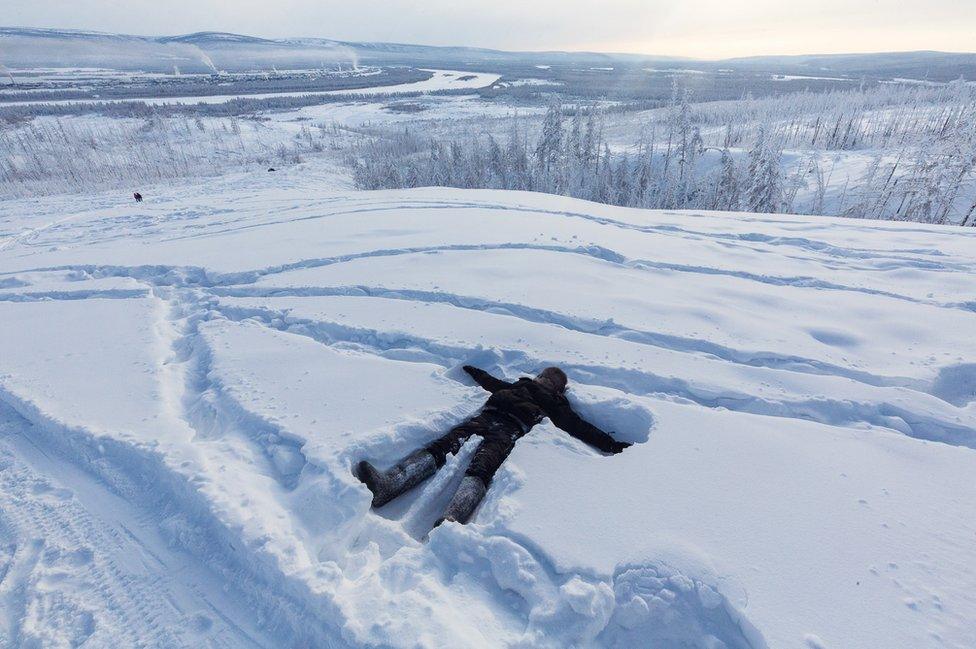
Fifteen-year-old Ayal is the last of his siblings still living with his mother in the small village of Verkhoyansk, in the east of Russia.
In a few months, he plans to follow his four brothers and sisters to study in the city of Yakutsk, more than 600km (373 miles) away from his hometown.
Although Verkhoyansk has a 3G antenna, meaning the teenagers can share their lives on Instagram and discover the world more easily, it's increasingly common for them to leave for the bigger cities.
Photographer Brice Portolano documented Ayal as he waits to depart, splitting his time between school, his computer, and on solitary walks through the frosty landscape of his village.
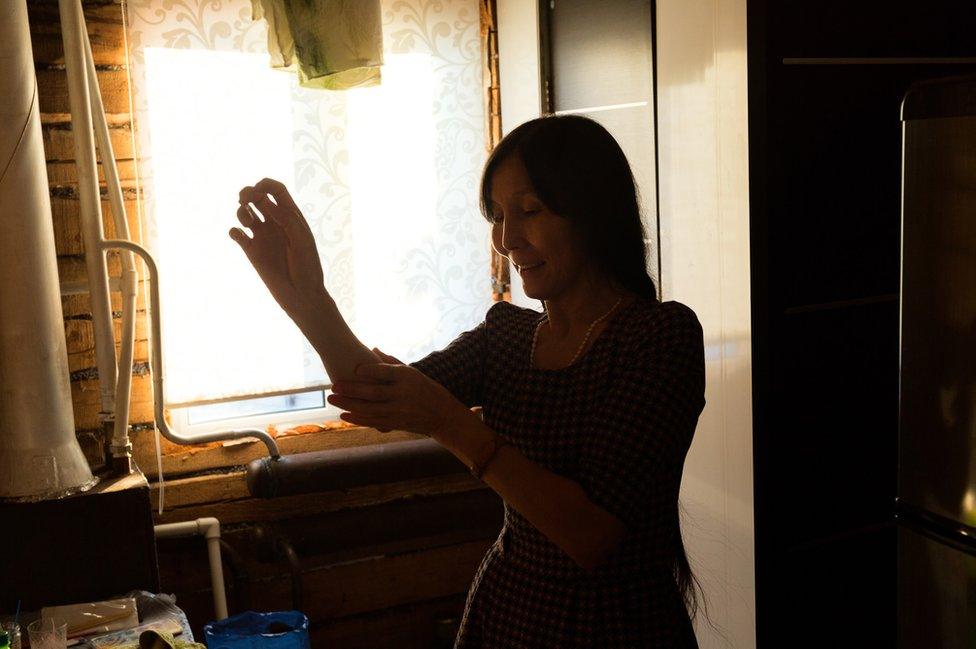
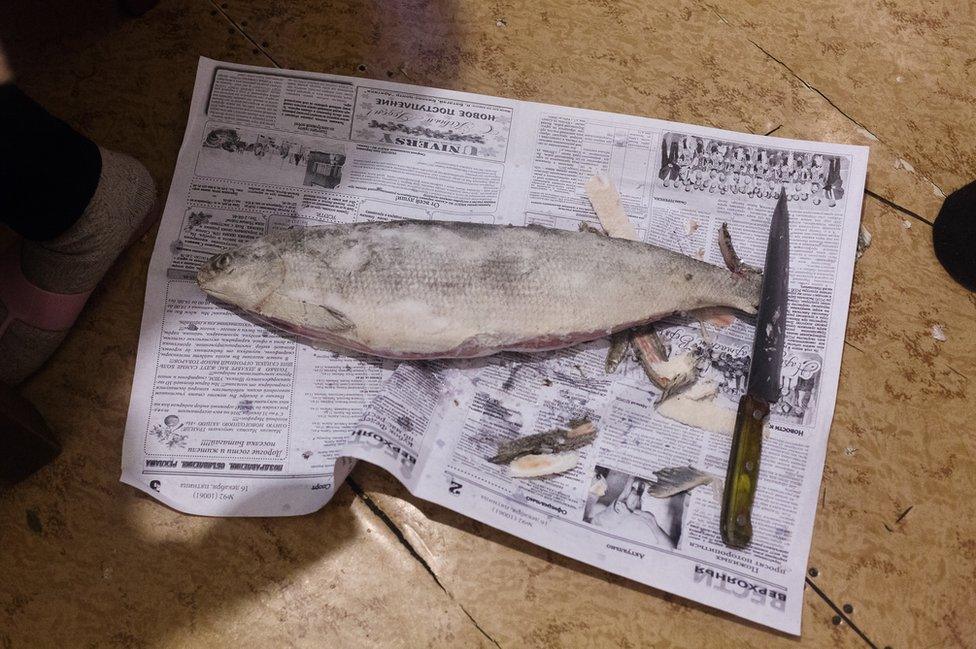
Divorced, Ayal's mother raised her five children on her own.
On the floor of the house sits one of Ayal's favourite meals - the local delicacy of Stroganina. Thin slices of frozen fish are cut with a knife. They are then eaten raw and frozen as an appetizer, served with a bowl of salt and pepper.
Verkhoyansk fights over the title of the coldest village in the world with Oymyakon, an area to the south-east of the town.
However, it holds the Guinness World Record for the greatest temperature range on Earth, from -67.8C in winter to 37.3C in summer.
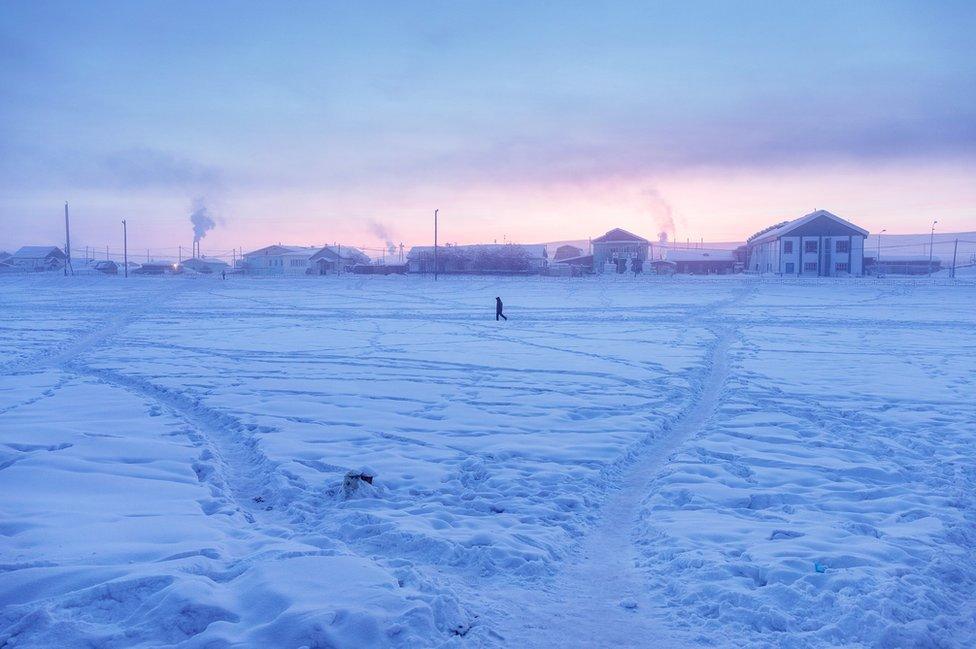
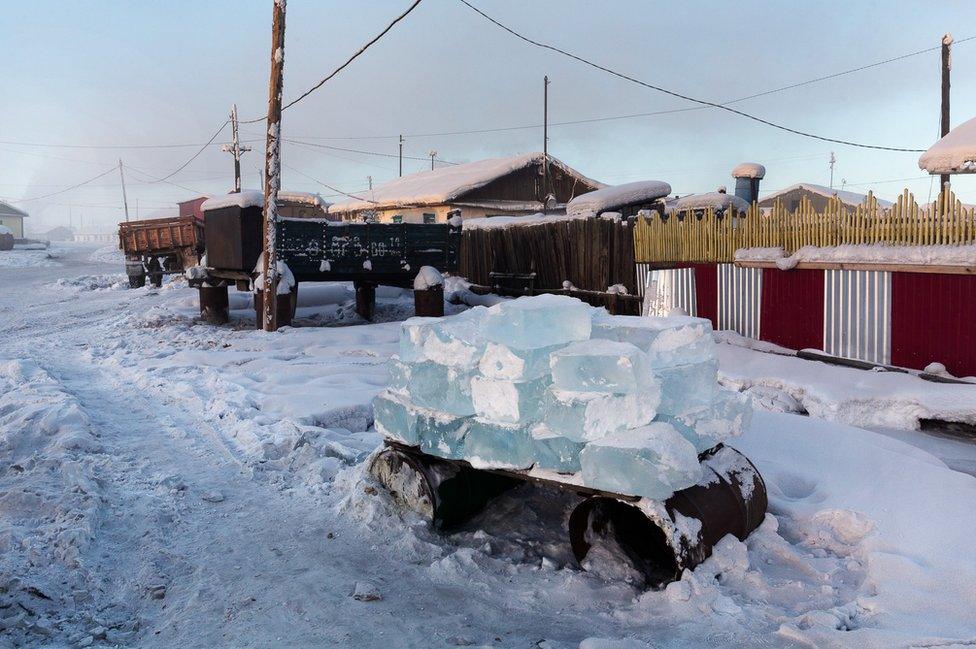
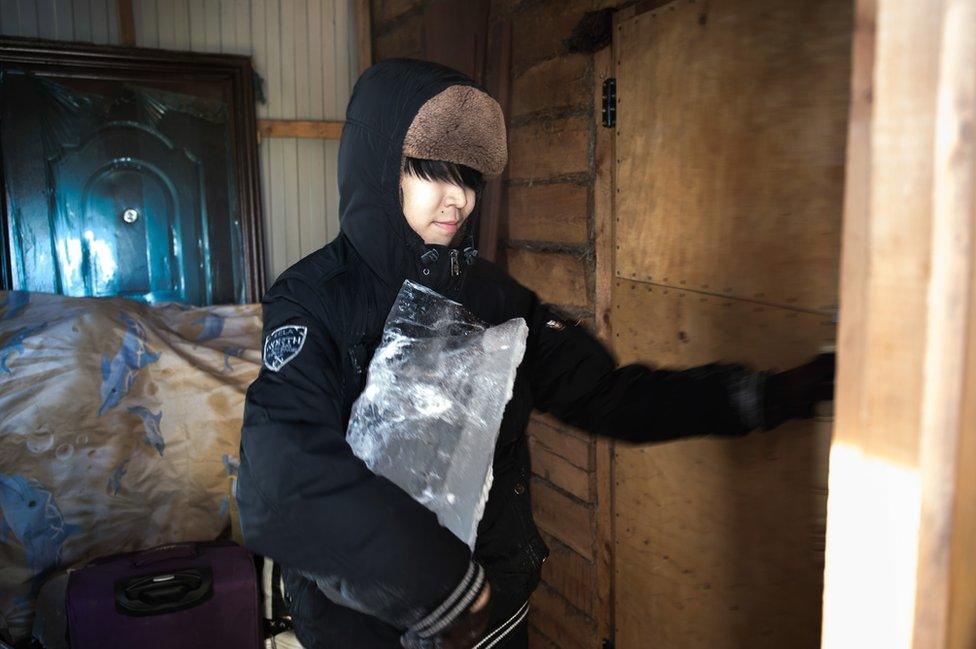
Blocks of ice are cut from the river and delivered to villagers for water.
Each house has its own stock of water stored outside in stacks of ice blocks.
The blocks are then melted inside the house.
Running water, which moves at very high temperatures to prevent the pipes from freezing, is not drinkable.
Temperatures are so low that some details of daily life take another dimension here:
batteries last only a few minutes
pen ink freezes before writing
it becomes dangerous to wear metal glasses
The locals also let their cars run all day, afraid they might not restart until spring.
Armed with thick fur and a layer of fat grown during the autumn, the horses and the dogs of the village spend the winter outside in these freezing temperatures.
The yakut horse is small and resistant, little domesticated and raised mainly for meat.
It holds a great place in the life, economy and spirituality of the Siberians.
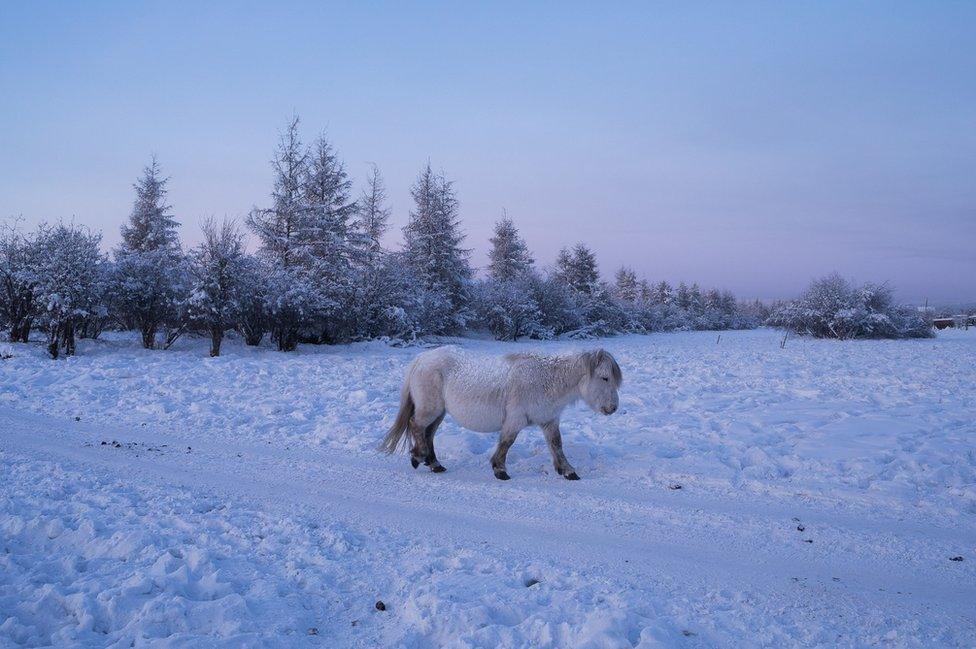
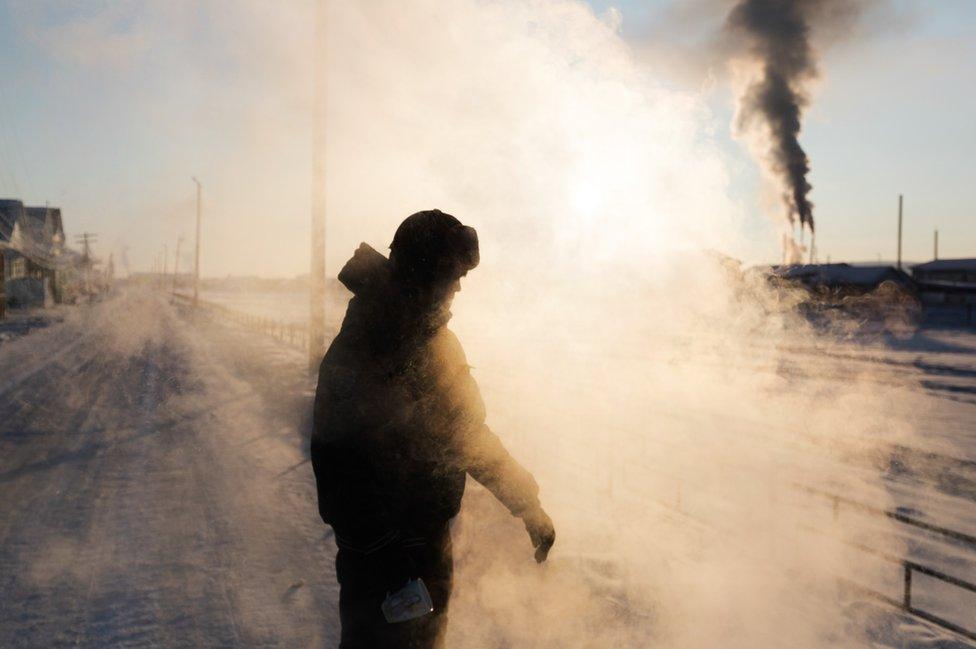
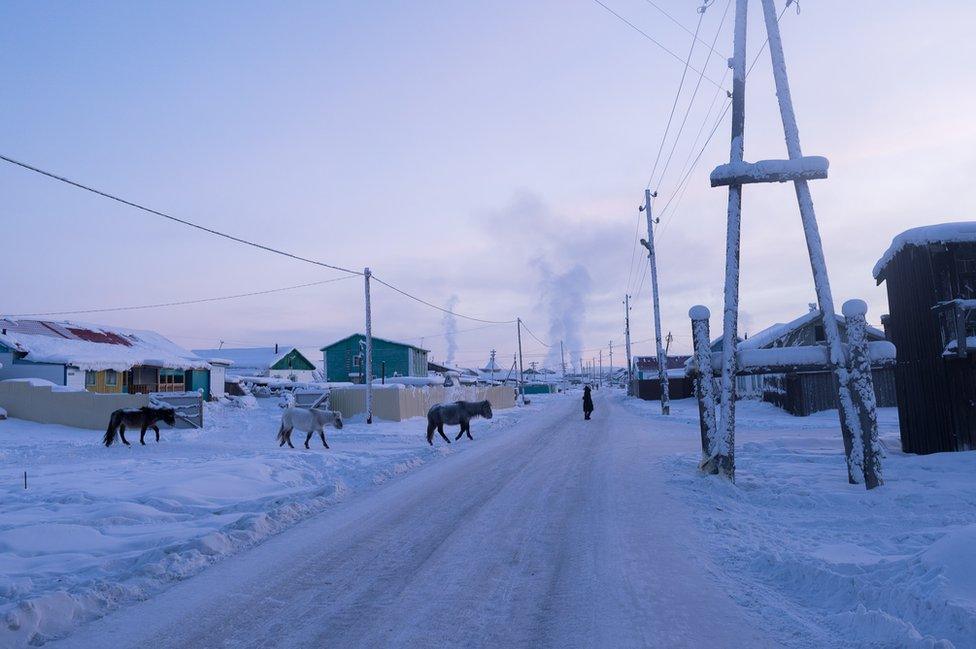
Lost in his own thoughts, Ayal often takes walks through the streets of the village.
Alone, or accompanied by the dog of the neighbour, with whom he has become friends, he likes to think about how his life will be when he moves to the city.
He wants to become an actor or a writer when he grows up.
He also explores abandoned buildings, such as the one below which used to belong to an insurance company.
Many buildings lie empty.
Today, 1,131 people live in the village of Verkhoyansk - about half the number that lived there 15 years ago.
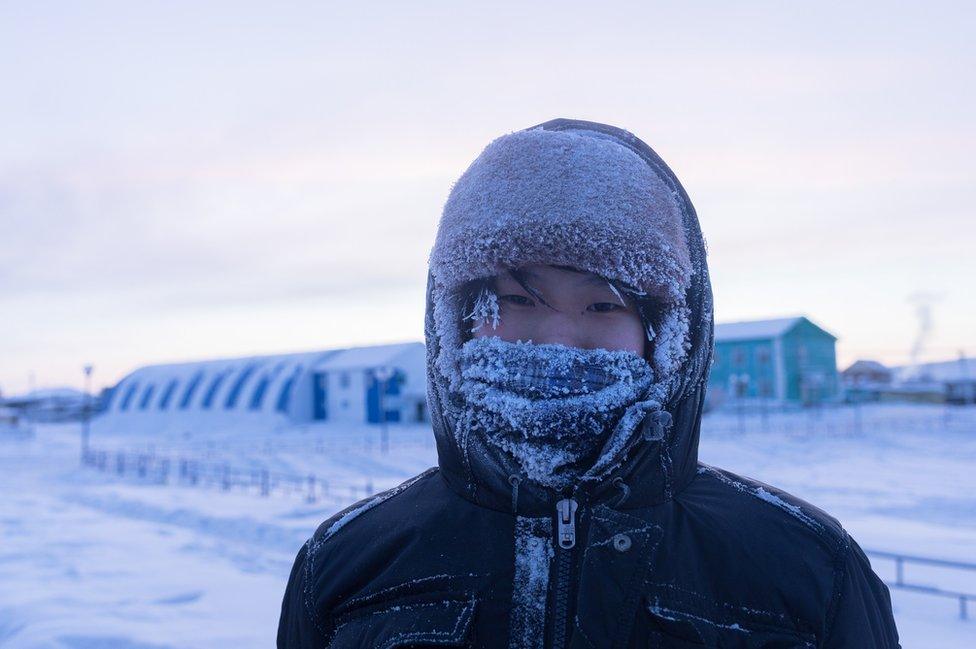
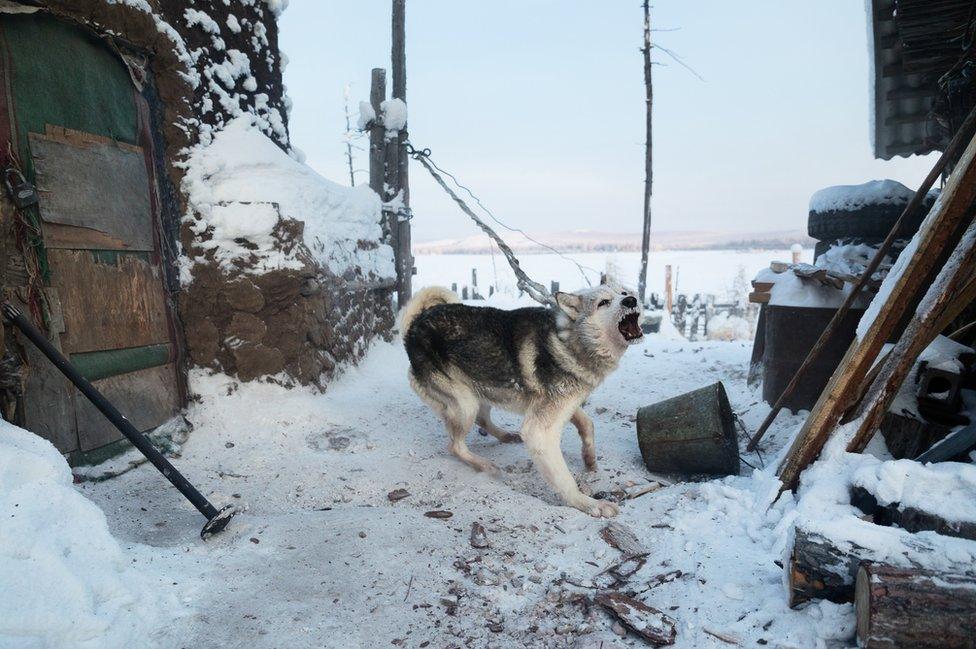
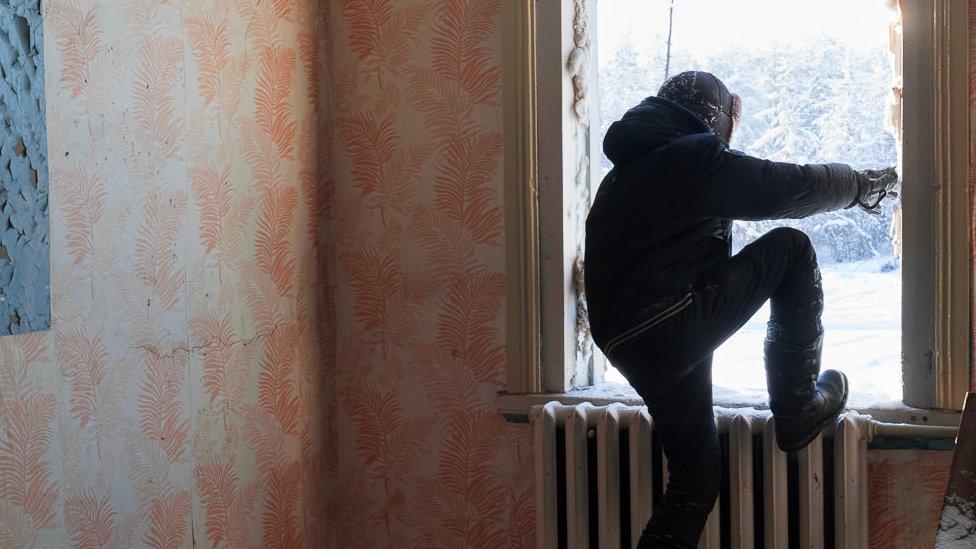
In their spare time, Ayal and his neighbour play video games downloaded by his brothers in town.
They are fans of the game Undertale, in which players control a child who has fallen into the Underground, a large secluded region underneath the surface of the Earth.
His siblings visit him once a year, for the summer solstice, a time at which a big gathering is organised.
Airline tickets are particularly expensive in the region, and it costs hundreds of pounds for a round trip.
Antonov AN-24 planes from the Soviet era are still used to connect the region of Verkhoyansk to Yakutsk.
Difficult climatic conditions sometimes make navigation dangerous, and the airline owning the planes has had six crashes and major incidents since 2003.
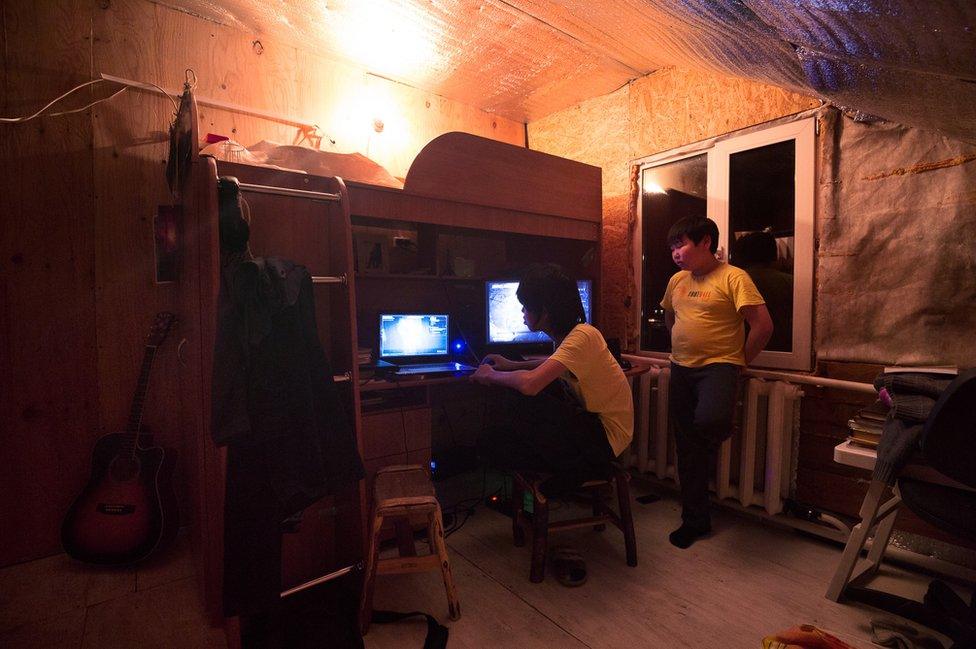
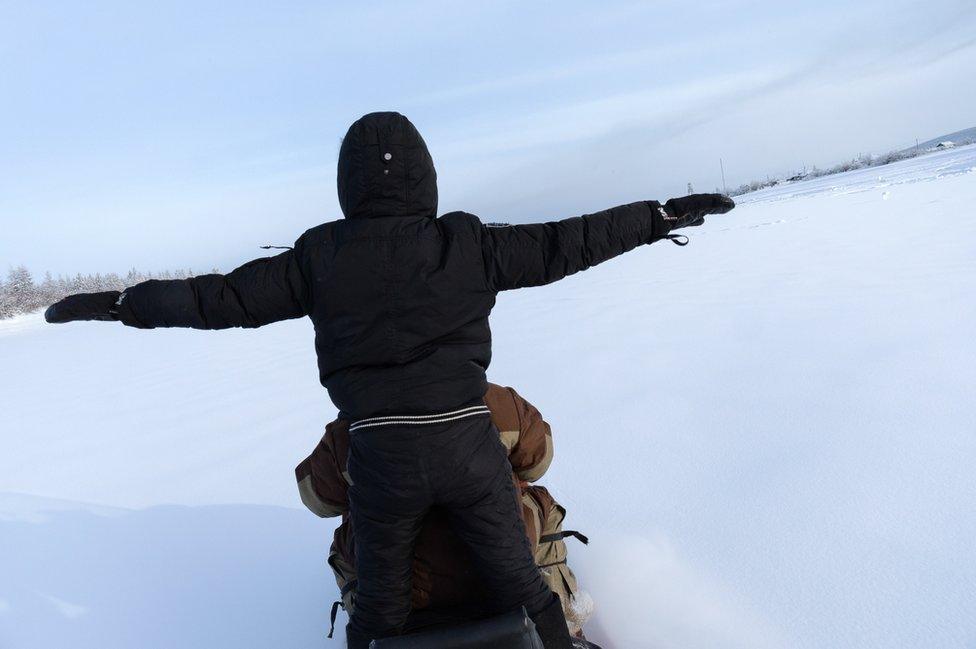
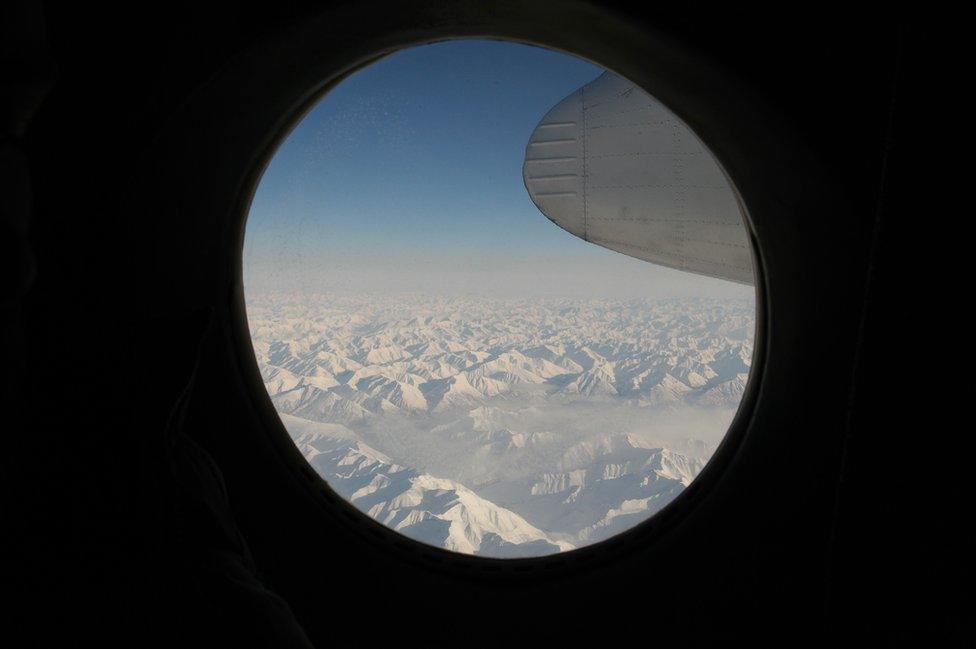
All images copyright Brice Portolano.